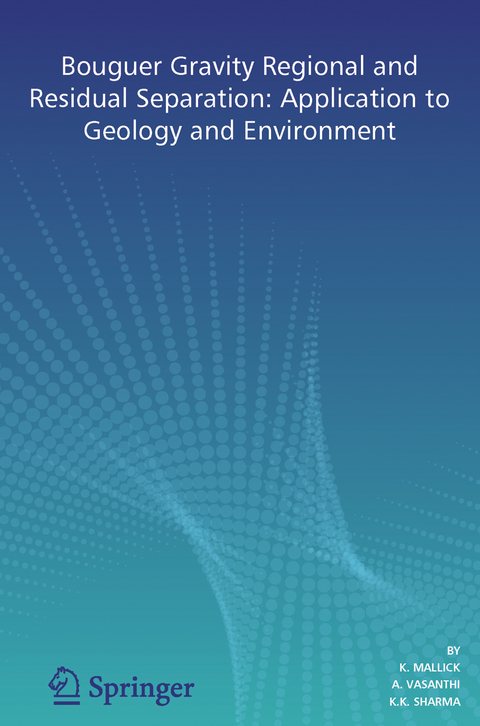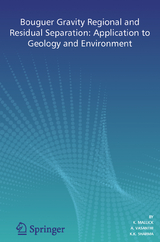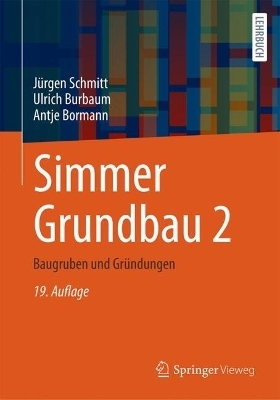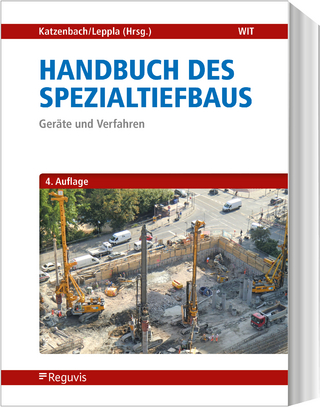Bouguer Gravity Regional and Residual Separation
Application to Geology and Environment
Seiten
Resolving regional and residual components arising out of deeper and shallower sources in observed Bouguer gravity anomalies is an old problem. The technique covered here is an attempt to sort out the difficulties that performs better than existing methods.
The process of regional-residual separation in potential field is age-old. Broadly, there are two techniques for regional-residual resolution, viz., graphical and analytical. Both the techniques have their own respective shortcomings. In this book, the authors have described the technique based on finite element method in which only eight (or twelve) nodal observed gravity values are used for the regional computation, thereby eliminating the possible contamination of anomalous fields and also the technique does not assume an explicit model and physical properties like density of rocks etc. in the regional computation. The book discusses the advantages of this technique viz., it is not site-specific; the computation is independent of any prior assumptions as to the form and depth of shallow or deeper structures; it can handle data distributed at random or on a regular grid on the map space; and the neighbouring surveys join smoothly.
The book focuses on application of this new technique which has been demonstrated in different fields, such as hydrocarbon, minerals and groundwater, structural studies, earthquake and engineering studies and impact structures.
The process of regional-residual separation in potential field is age-old. Broadly, there are two techniques for regional-residual resolution, viz., graphical and analytical. Both the techniques have their own respective shortcomings. In this book, the authors have described the technique based on finite element method in which only eight (or twelve) nodal observed gravity values are used for the regional computation, thereby eliminating the possible contamination of anomalous fields and also the technique does not assume an explicit model and physical properties like density of rocks etc. in the regional computation. The book discusses the advantages of this technique viz., it is not site-specific; the computation is independent of any prior assumptions as to the form and depth of shallow or deeper structures; it can handle data distributed at random or on a regular grid on the map space; and the neighbouring surveys join smoothly.
The book focuses on application of this new technique which has been demonstrated in different fields, such as hydrocarbon, minerals and groundwater, structural studies, earthquake and engineering studies and impact structures.
Preface.- 1. Introduction.- 2. Regional and residual gravity anomalies : The existing issues.- 3. New computational schemes.- 4. Applications to geological and environmental problems.- 5. Hydrocarbon.- 6. Minerals and Groundwater.- 7. Structural studies.- 8. Isostatic studies.- 9. Vertical Crustal Movements.- 10. Engineering Applications and earthquake studies.- 11. Other applications.- Index.
| Zusatzinfo | 10 Illustrations, color; 60 Illustrations, black and white; X, 250 p. 70 illus., 10 illus. in color. |
|---|---|
| Verlagsort | Dordrecht |
| Sprache | englisch |
| Themenwelt | Naturwissenschaften ► Geowissenschaften ► Geologie |
| Naturwissenschaften ► Geowissenschaften ► Geophysik | |
| Naturwissenschaften ► Geowissenschaften ► Mineralogie / Paläontologie | |
| Technik | |
| ISBN-13 | 9789400704053 / 9789400704053 |
| Zustand | Neuware |
| Informationen gemäß Produktsicherheitsverordnung (GPSR) | |
| Haben Sie eine Frage zum Produkt? |
Mehr entdecken
aus dem Bereich
aus dem Bereich
Baugruben und Gründungen
Buch | Hardcover (2024)
Springer Vieweg (Verlag)
CHF 83,95
Geräte und Verfahren
Buch | Hardcover (2024)
Reguvis (Verlag)
CHF 199,95




